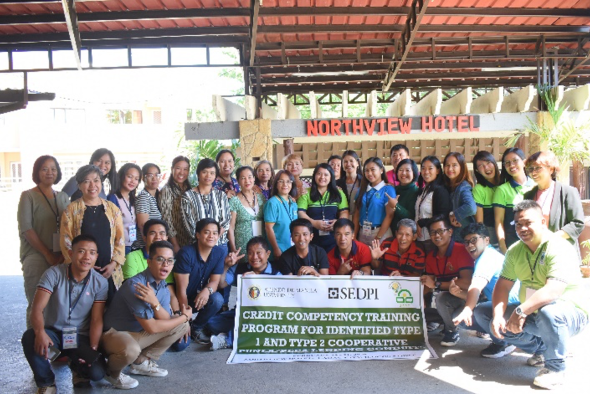Coops trained on risk management & financial management
- 03
- Apr

An important part of addressing delinquency for cooperatives is risk management — a systemic approach that includes identification and prioritization of risks, and implementation of strategies to mitigate the risks. This approach entails both the prevention of potential problems and early detection of actual problems of cooperatives.
Risk management is the focus of the third day of the credit competency training of seven credit cooperatives from Northern Luzon. The training was held in Northview Hotel, Laoag City, Ilocos Norte on February 20, 2020. The training aims to reduce delinquency and improve collection to ensure financial sustainability for cooperatives.
The cooperatives were trained on loan administration strategies, understanding risk management, understanding financial analysis, and measures of financial analysis.
For the loan administration strategies, the participants were asked to answer a questionnaire on delinquency prevention measures. The scores they got from the test have corresponding indications in their organization’s systems and policies on preventing delinquency. Most of the participants fell under the rating which indicates that they may be in a delinquency crisis.
To address their delinquency crisis, the cooperatives received important loan promotion and application tips and strategies from the trainers. The cooperatives learned the importance of highlighting incentives to clients as a result of flawless repayment behavior in loan promotion. They also learned to put emphasis on character and repayment behavior when administrating loan applications.
On the risk management topic, the participants were engaged in an activity where they were asked to illustrate the risk management process. They then discussed the four types of microfinance risks including financial management, operational, institutional, and external risks, and how to assess and approach each. The cooperatives learned about keys to effective risk management as well as the nine rules of risk management. The trainer reminded the participants that risk management is an ongoing process because vulnerabilities change over time.
For the financial management training, the trainers stressed on the significance of financial analysis in making financial decisions and achieving the goals of sustainability. The participants were able to review the basic financial statements and the importance of each.
To further strengthen and support the participants’ understanding of financial analysis, the trainers also discussed the measures of financial analysis. The participants’ active sharing of their actual experiences beefed up the discussion and made everyone able to take home valuable lessons.
Social Enterprise Development Partnerships, Inc. (SEDPI) was the successful bidder for this project under the Department of Agriculture’s Agricultural Credit Policy Council (ACPC). This was the first of six batches that were also held in Cagayan de Oro, Davao, Iloilo, Koronadal and Laguna.


i am OFW,, I could like to join to this Coop.